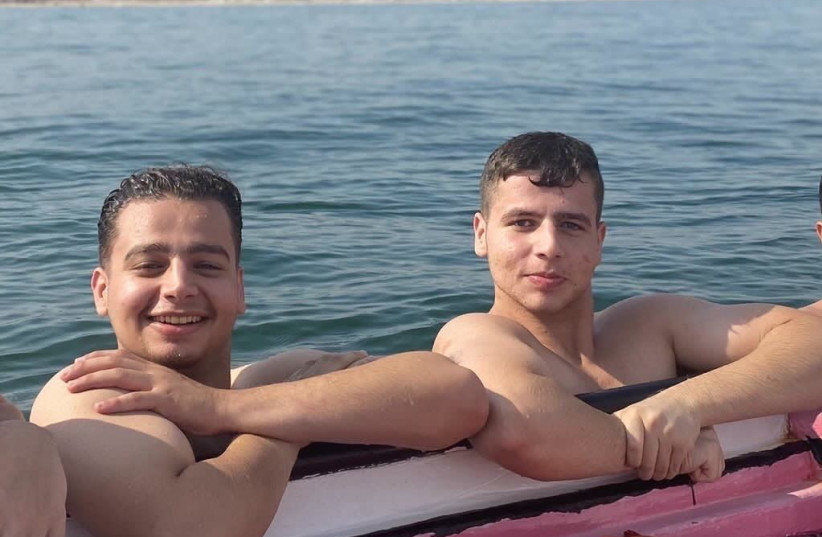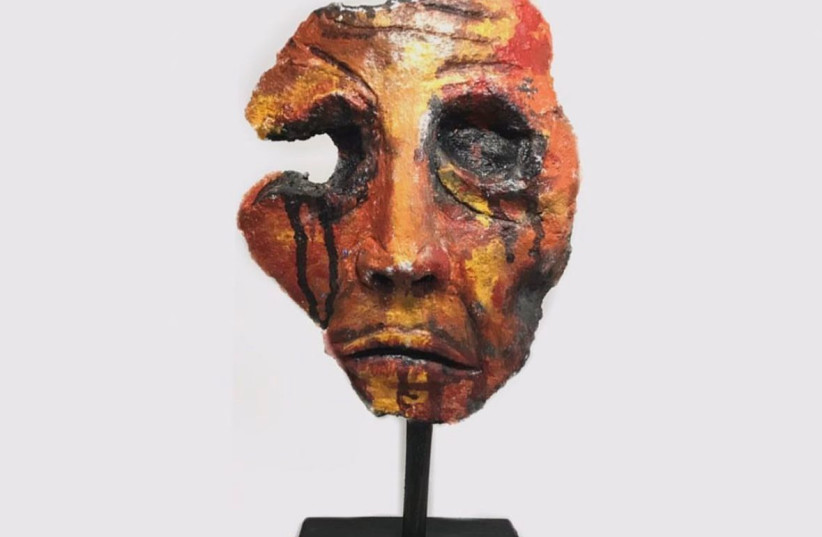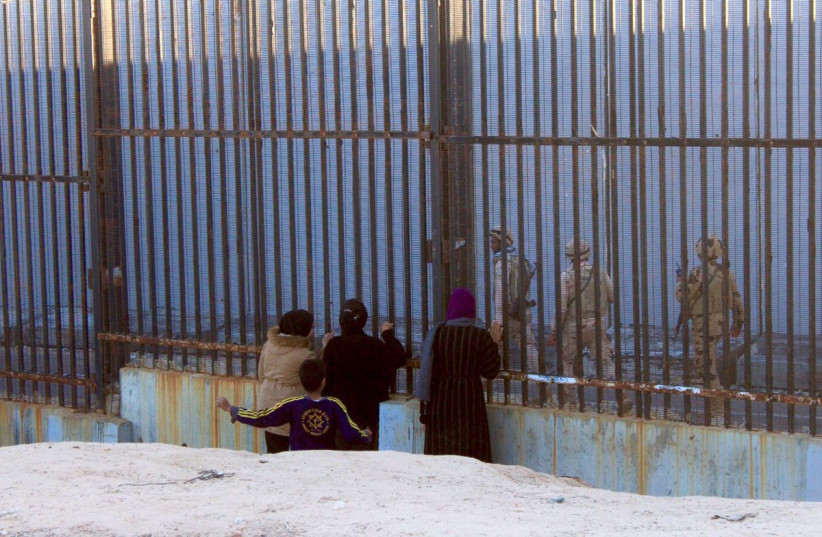Amid ongoing war, acute food shortages in Gaza, and the threat of an Israeli military operation, an increasing number of Palestinians are searching for an escape route contingent on their financial ability.
For more stories from The Media Line go to themedialine.org
Gazans must navigate financial burdens and scams to secure a spot on the list for entry into Egyp through the Rafah crossing.
This lengthy process, compounded by prevalent financial shortages, prolongs the suffering of Palestinians with no end in sight.
Currently, the Rafah border crossing remains closed to most Gazans. A select few, including foreign passport holders, the seriously wounded or ill, and occasionally students, may leave Gaza.
Other residents can reach Egypt but must pay exorbitant fees ranging from $6,000 to $12,000 per person.
This money ends up in the pockets of Egyptian agencies, like the Hala Foundation and the Organi Group, both owned by founder Ibrahim Al Organi.
Since 2015, these companies have exclusively secured travel permits for Gazan Palestinians to Egypt, profiting from this arrangement.

Many Gaza Strip residents are turning to GoFundMe to raise the necessary funds to escape and ensure the safety of their families. Relatives abroad are also using GoFundMe to secure donations aiding their departure from Gaza to Europe or nearby Arab nations.
Omar Abd Elmeneim, a Palestinian in Berlin, raised funds on GoFundMe to assist his brother Abdullah's departure from Gaza to Egypt through the Rafah crossing, telling The Media Line, “My family is not that rich, so I found a way to help him from abroad.
I managed to collect €7,000 [$7,500], thanks mainly to a charity event I held in Berlin and private donations to my link. With this money, I could pay the Hala Company to let him cross the border.
He is still on the waitlist, but hopefully, he will be in Egypt this week.”
Elmeneim describes the entire process as challenging. He recounted finding someone falsely claiming to be affiliated with the Hala Company, only to steal the funds raised.
“Luckily, the Egyptian authorities found out that he was a fraud and stole money from hundreds of families, and they managed to return the money to us,” he explained.

“When we got our money back, I asked my uncle, who lives in Egypt, to go to the Hala Company office, apply for my brother, and pay the sum in cash.
In the meantime, I also paid the fees for Zagazig University in Egypt, where my brother will study medicine once he leaves Rafah,” said Elmeneim.
“It was hard for my brother to cope with all of this since he feels responsible for our family, which he is leaving behind, but it is the only way to grant him a better future.”
Even with the necessary funds and paperwork, numerous Palestinians face visa denials from European and Egyptian authorities, with some instances of money being taken without providing a receipt.
Some Gazans find themselves stranded in Egypt
The hardships do not stop for Palestinians even after arriving in Egypt. Some spent a fortune to exit Gaza and now find themselves stranded and destitute in Egypt.
Take Muhammad, who managed to enter Egypt through the Rafah crossing two weeks ago. “Through the platform GoFundMe, I gathered enough money to exit Gaza, but the process of collecting it was pretty slow.
Once I had it, I paid the Hala Company and was then registered on the travel list at the border crossing. After two weeks, I could leave,” he told The Media Line.
“Now, I am staying in Egypt, but there is no help towards us as refugees. Only the Palestinian consulate in Cairo donated 2,000 Egyptian pounds [US$42] to each escaped person.
Overall, it is difficult to deal with the thought of being here while my family is still in Rafah, but I started a crowdfunding page for them, too,” he said.
“GoFundMe is very useful to each Palestinian because we are all facing shortages of money since what we had left was used to pay for the high-priced goods within the Strip,” he added.
Despite their hardships, Palestinians inside Gaza similarly successfully raise money on GoFundMe to help improve their daily lives.
Osama Hussein, a Palestinian artist originally from Khan Yunis, is one such person.

“I started to collect money to help my mom, father, sister, and myself to get out of here. I had a beautiful studio before the war, but it got hit by the Israelis, and now I am left with nothing,” he told The Media Line.
“We are facing shortages of everything, and psychologically, I cannot draw as I used to. My only hope is to collect enough money to get out of here safely and to go to Europe to practice my art,” he added.
Ahmed Jarboa, a photographer in Rafah, used GoFundMe to raise funds for a new camera and essential tools to pursue his passion.
He told The Media Line, “I have always been a photographer, but since the outbreak of the war, my camera broke, and I couldn’t document life in Gaza as I used to. Now, I use my phone to show what we face daily.”
“I wish for me and my family to reach Europe, find a job there related to my photographic skills, and start over,” he said.
Giorgia Valente is a recent Ca’ Foscari University of Venice graduate and an intern in The Media Line’s Press and Policy Student Program.
